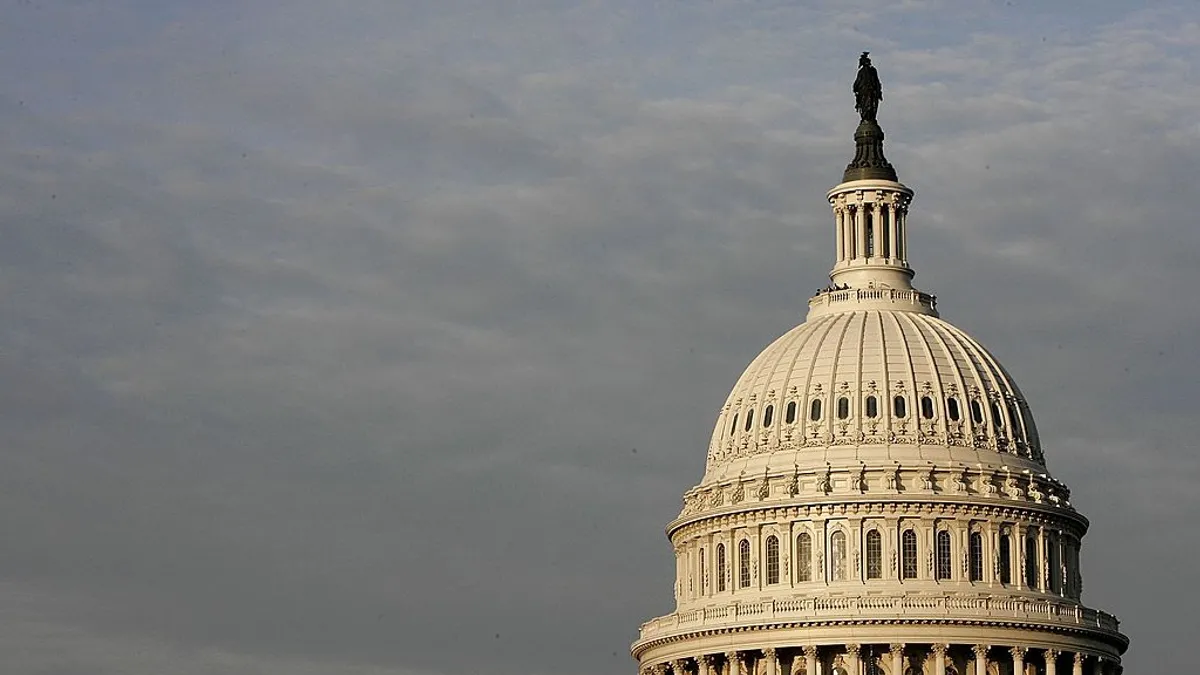Dive Brief:
- Senate Finance Committee Chair Ron Wyden (D-Ore.) and two other Democrats on the panel are seeking support for legislation that would raise corporate taxes on foreign profits and help pay for President Biden’s proposed $3.5 trillion economic spending package.
- The draft law aligns with the goals of a Biden administration corporate tax plan and would aim to shift investment and job creation to the U.S. from abroad by revamping three provisions in the Trump administration’s 2017 tax changes.
- “Overhauling the international tax code is central to our efforts to restore fairness and fund critical investments like paid leave and the expanded child tax credit — Social Security for our children,” Wyden said in a statement. “The Republican tax law was a massive giveaway to mega-corporations, and corporate tax revenue is down nearly 40% since before [the] 2017” enactment of Trump’s changes.
Dive Insight:
President Biden has proposed raising taxes on corporations and wealthy individuals to fund spending on programs including healthcare, education, paid leave, child care and climate change reduction.
Biden would raise the corporate tax rate to 28% from 21%, create a 15% minimum tax for companies with income exceeding $2 billion and set a 21% levy on offshore profits.
Treasury Secretary Janet Yellen in June secured agreement from 130 countries for a minimum global corporate tax of 15% aimed at ending “international tax competition” and curtailing billions of dollars in tax avoidance.
Large U.S. companies report 60% of foreign profits in seven low tax jurisdictions that make up less than 4% of global gross domestic product, according to the White House.
Business groups have criticized Wyden’s foreign tax changes since April, when he broadly described his joint proposal with two other Democrats on the finance committee — Mark Warner of Virginia and Sherrod Brown of Ohio.
The legislation “would increase taxes on American companies and not their competitors, which would tilt the playing field against our companies, jeopardize American job growth and make the United States less competitive with China and others,” the Pace Coalition said in a statement.
“Any further increases of taxes paid only by American companies will put them at a greater disadvantage globally — including against Chinese state-owned enterprises,” according to the coalition, which represents the Business Roundtable, National Association of Manufacturers, National Foreign Trade Council and U.S. Chamber of Commerce.
Like foreign tax changes proposed by Biden, the Wyden plan focuses on three provisions in current law.
Wyden would raise the global intangible low-tax income (GILTI) rate while moving it to a country-by-country system that prevents companies from shielding income in overseas tax havens. He would change the foreign-derived intangible income (FDII) provision to discourage offshoring of factories and spur research and development and other innovation in the U.S.
Wyden would also alter the base erosion and anti-abuse tax (BEAT) by restoring the full value of tax credits for corporate investments made in the U.S.
“We’re going to reward companies that invest in the United States,” he said. He has asked for submissions of public comment on his proposal by Sept. 3.
“We need a system that incentivizes companies to make investments here in the U.S. in cutting-edge R&D, domestic production and training American workers for the high-quality jobs of the future,” Warner said in a statement. “The 2017 tax law unfortunately provided incentives that do the opposite, encouraging companies to offshore operations and jobs.”
Passage of the legislation faces united Republican opposition, leaving Democrats, with only a thin majority, to pass it on a party-line vote.














